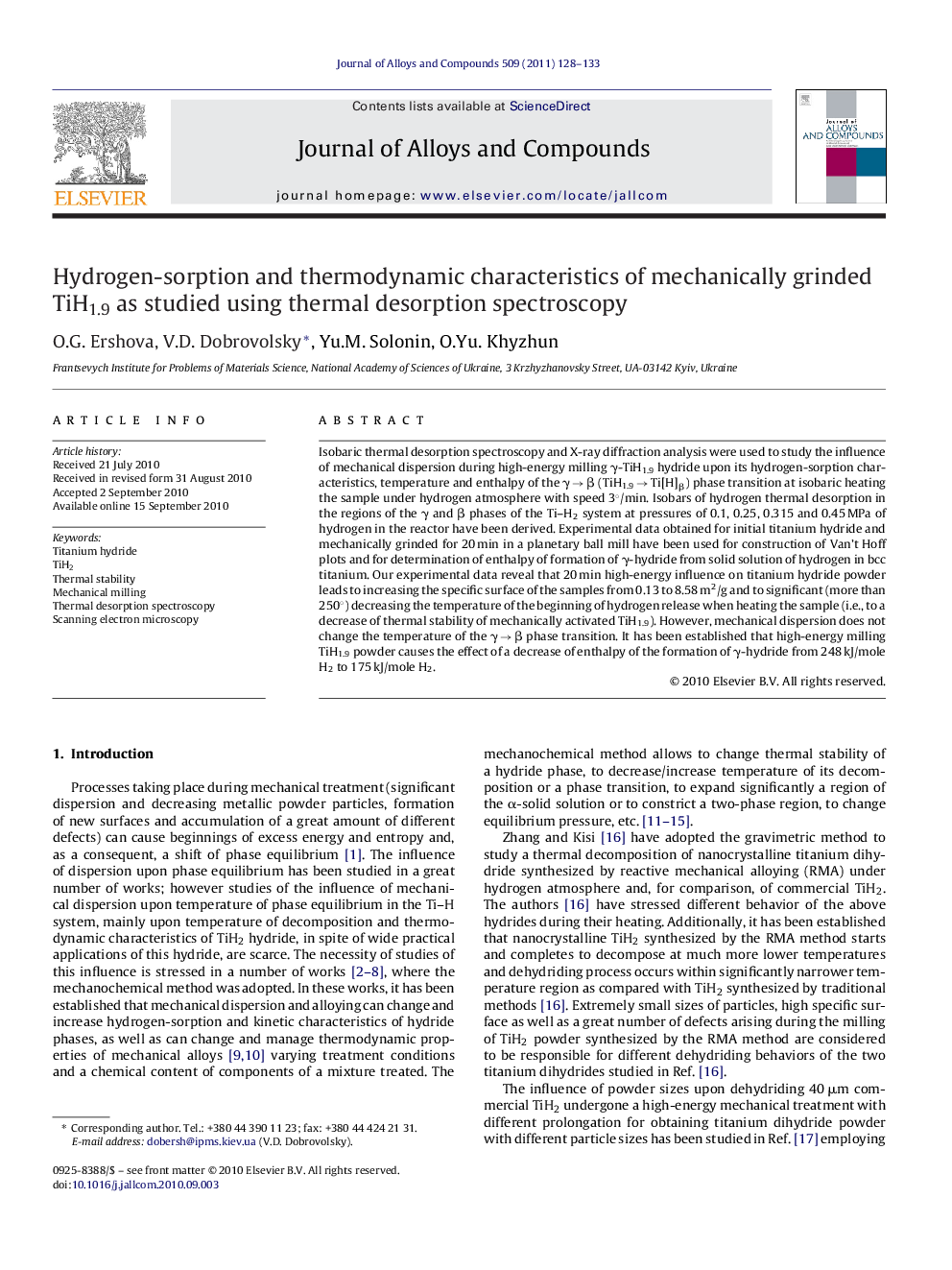| کد مقاله | کد نشریه | سال انتشار | مقاله انگلیسی | نسخه تمام متن |
|---|---|---|---|---|
| 1619017 | 1005715 | 2011 | 6 صفحه PDF | دانلود رایگان |

Isobaric thermal desorption spectroscopy and X-ray diffraction analysis were used to study the influence of mechanical dispersion during high-energy milling γ-TiH1.9 hydride upon its hydrogen-sorption characteristics, temperature and enthalpy of the γ → β (TiH1.9 → Ti[H]β) phase transition at isobaric heating the sample under hydrogen atmosphere with speed 3°/min. Isobars of hydrogen thermal desorption in the regions of the γ and β phases of the Ti–H2 system at pressures of 0.1, 0.25, 0.315 and 0.45 MPa of hydrogen in the reactor have been derived. Experimental data obtained for initial titanium hydride and mechanically grinded for 20 min in a planetary ball mill have been used for construction of Van’t Hoff plots and for determination of enthalpy of formation of γ-hydride from solid solution of hydrogen in bcc titanium. Our experimental data reveal that 20 min high-energy influence on titanium hydride powder leads to increasing the specific surface of the samples from 0.13 to 8.58 m2/g and to significant (more than 250°) decreasing the temperature of the beginning of hydrogen release when heating the sample (i.e., to a decrease of thermal stability of mechanically activated TiH1.9). However, mechanical dispersion does not change the temperature of the γ → β phase transition. It has been established that high-energy milling TiH1.9 powder causes the effect of a decrease of enthalpy of the formation of γ-hydride from 248 kJ/mole H2 to 175 kJ/mole H2.
Research highlightsTiH1.9 hydride powder was grinded in a planetary ball mill under argon atmosphere with rotation speed 1630 rpm for 20 min. The high-energy influence on titanium hydride powder leads to: (i) increasing specific surface of the samples from 0.13 to 8.58 m2/g; (ii) significant (more than 250°) decreasing temperature of the beginning of hydrogen release when heating the sample; (iii) a decrease of enthalpy of the formation of γ-hydride from 248 kJ/mole H2 to 175 kJ/mole H2.
Journal: Journal of Alloys and Compounds - Volume 509, Issue 1, 5 January 2011, Pages 128–133